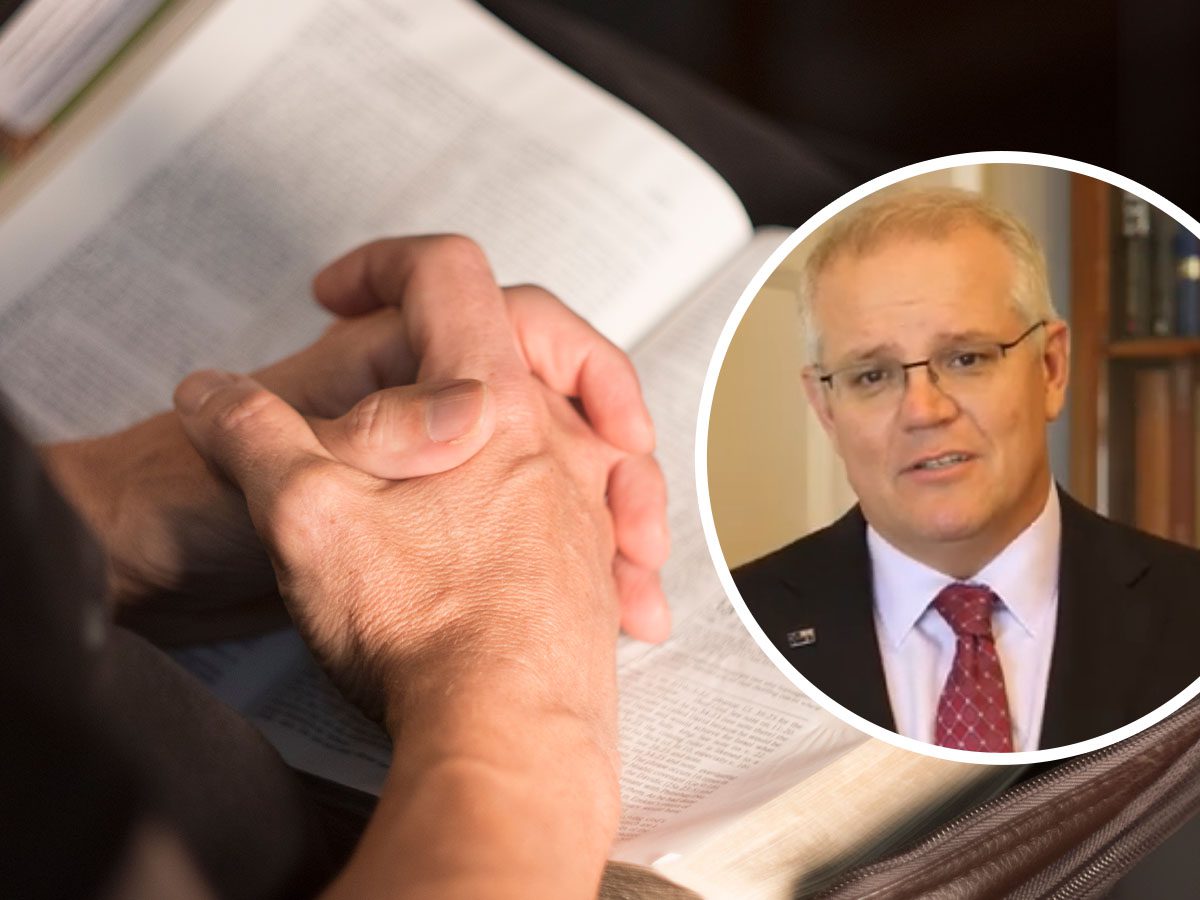
Scott Morrison, the former Prime Minister of Australia, has often been a figure of both political and spiritual significance. He served as the nation’s leader from 2018 to 2022. Morrison’s tenure was marked by unprecedented challenges, from the COVID-19 pandemic to natural disasters and rising global tensions. Yet, through it all, Morrison has remained steadfast in his Christian faith, a conviction that he believes guided him through his time in office.
Morrison’s faith is not merely a private belief but a core part of his identity. He recently opened up about his spiritual journey in his book, “Plans For Your Good: A Prime Minister’s Testimony of God’s Faithfulness”. Morrison emphasizes that the book is not a political memoir but rather a testament to the profound impact that his faith in God has had on his life. “I believe God has been faithful to me over the course of my life,” he shared with CBN News, offering a glimpse into the deep spiritual convictions that have shaped his path.
Morrison’s journey of faith began early in his life. He grew up in a Christian household where faith was not just preached but practiced daily. His parents’ dedication to their beliefs profoundly influenced him, instilling in him the understanding that following Jesus means serving others—both in the church and the broader community. “I learned that life was not about what you accumulate, but what you contribute,” Morrison reflects a lesson that eventually led him into public service.
At the tender age of 12, Morrison made the personal decision to follow Jesus, a commitment that has guided him for over 40 years. Despite the many challenges that come with public life, Morrison has continually sought to integrate his faith into his leadership, approaching every decision with prayer and a desire for divine wisdom. He acknowledged that while his role as Prime Minister was not to impose a theocracy, his faith was always a guiding principle. “You are Australia’s prime minister, and you must serve everybody… including those that aren’t the same as yours,” he said, highlighting the balance he sought between living out his faith and respecting the diverse beliefs of the Australian people.
Morrison’s leadership was tested in ways that few could have anticipated. His tenure was marked by what he described as a “perfect storm” of crises—bushfires, droughts, floods, and the global pandemic. Yet, through these tumultuous times, he remained convinced of God’s faithfulness, a belief that he hopes will encourage others in their own spiritual journeys.
He often likens his experience to that of Daniel from the Old Testament, who served a secular king while remaining true to his faith. Like Daniel, Morrison sought to be a faithful servant in a challenging environment, maintaining his Christian values while navigating the complexities of political leadership. He recalls, “When they told him he couldn’t practice his faith or pray, he refused. They threw him in a furnace, then the lions were kept silent… you just have to be consistent about who you are and not shy about it.”
Morrison’s faith was not without its critics, especially in a political climate where the role of religion in public life is often debated. In the United States, the separation of church and state is frequently invoked to argue that a politician’s religious beliefs should be kept separate from their public duties. However, Morrison dismisses this notion as a “bogus joke,” arguing that it is a convenient way to marginalize the influence of Christianity in society. “Freedom of religion, and, importantly, the separation of church and state was established to protect faith, not to silence it,” Morrison asserted, highlighting the importance of allowing religious expression in public life.
Morrison’s approach to faith and governance is one of balance. He acknowledges that while his Christian beliefs were foundational to his decision-making process, he also relied on his intellect, experience, and the input of others to navigate the complex issues of governance. “Does that mean that every policy decision that I took, I somehow … took … the Bible as some policy manuscript? Well, that’s not possible,” he said, pointing to the necessity of integrating faith with practical wisdom.
Despite the challenges, Morrison remains unapologetically vocal about his faith, encouraging other Christians to stand firm in their beliefs, especially in the public square. He hopes that his book will inspire others to trust God completely, even when the path is uncertain. “If you can’t trust God with everything, you can’t trust Him with anything,” he states, urging believers to surrender their lives to God’s will fully.
Morrison also warns against treating faith like a “vending machine,” where people only turn to God when they want something. Instead, he advocates for a faith that trusts in God’s plan, regardless of the circumstances. Reflecting on his journey, Morrison shares that he found God in both the heights of his achievements and the depths of his despair, recognizing that he was blessed in both.
Scott Morrison’s story is a powerful testament to the enduring strength of faith in the face of adversity. His journey from a young boy who gave his life to Jesus to becoming the Prime Minister of Australia reminds us that faith can be a guiding light even in the most challenging of times. Through his book and his public testimony, Morrison hopes to encourage others to trust in God’s faithfulness, no matter where their journey may lead.
In a world where the role of faith in public life is often contested, Morrison’s story reminds us that true leadership is about more than just political power—it’s about living out one’s values with integrity, humility, and unwavering faith.


